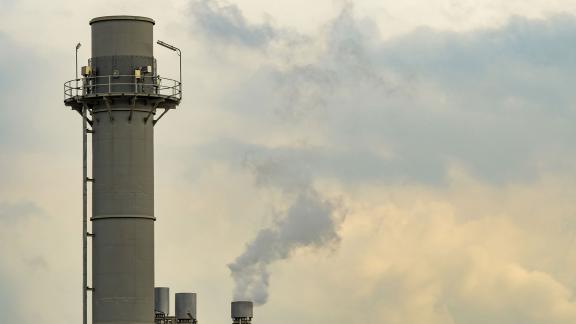Introduction
Sustainability is critical for future proofing the NHS. In recent years, the health impacts of climate change and biodiversity loss have emerged as a global public health concern.
Given its large carbon footprint, it’s essential the NHS takes action to reduce carbon impact and support more sustainable use of finite resources. For example, in the UK the NHS produces up to 600,000 tonnes of waste each year, with around 85 per cent of all medical waste is categorised as non-hazardous.
Health boards, NHS trusts and special health authorities are therefore taking action to support responsible consumption and reduce waste. At Aneurin Bevan University Health Board, the successful Gloves R Off campaign has encouraged a reduction in the amount of non-sterile gloves used across healthcare sites in Gwent. Cardiff and Vale University Health Board’s ‘Green ICU team’ have implemented a raft of changes at University Hospital Wales’ Adult Critical Care Unit, resulting in 2 tonnes of plastic waste reduction annually. These waste-saving efforts have the positive byproduct of driving financial efficiencies.
In Swansea Bay University Health Board and Velindre University NHS Trust, litter-picking and beekeeping initiatives are having a dual impact – the former on patient outcomes and the environment, the latter on staff wellbeing and the environment.
As an anchor institution that effects the lives of everyone in Wales, the NHS is working hard to put sustainability at the heart of its work, to ensure resilience and make it fit for future generations.
This briefing highlights examples of how NHS organisations in Wales are taking action to reduce their environmental impact.
- Download this chapter
-
Introduction
Aneurin Bevan University Health Board (ABUHB)
Change in local NHS glove habits cut costs and reduces emissions
- Campaign aims to revert to pre-pandemic levels of non-sterile glove usage in the health board
ABUHB’s Decarbonisation group is encouraging a reduction in the amount of non-sterile gloves used across healthcare sites in Gwent. The Gloves R Off campaign challenges staff to assess infection control risks on a case-by-case basis, as opposed to wearing gloves by default in every clinical situation, with the aim of decreasing the health board’s environmental impact and drive financial efficiencies.
In 2023, the health board spent almost £1 million on more than 21 million non-sterile gloves. This is equal to emissions of over 570 tonnes C02eq. The campaign aims to revert to pre-pandemic levels of glove usage, which was close to half the figure reported in 2023.
- Download this chapter
-
Aneurin Bevan University Health Board (ABUHB)
Betsi Cadwaladr University Health Board (BCUHB)
Green fingered volunteers improve green spaces at Wrexham Maelor Hospital
- Volunteers help improve Wrexham Maelor Hospital green spaces, benefitting staff and patients
With funding from the Police and Community Tract (PACT), Wrexham Community Gardeners have renovated and planted the green areas around the three principal entrances to the hospital to create a comforting environment for staff, patients, and visitors.
The group has worked closely with the health board’s estates, security, and management teams to identify areas that need improvement to create a better first impression and welcome to the site. This helps improve staff and patient wellbeing, while capitalising on the environmental impacts of green spaces such as air quality and enhancing biodiversity.
- Download this chapter
-
Betsi Cadwaladr University Health Board (BCUHB)
Cardiff and Vale University Health Board (CAVUHB)
Award-winning Green ICU team put the planet at the centre of critical care
- Team’s efforts mean annual reduction of 2 tonnes of plastic waste, saving thousands of pounds
An award-winning team of clinicians and managers at the University Hospital of Wales’ Adult Critical Care Unit have collaborated to drive change for patients and the planet, successfully reducing waste, conserving energy and making financial savings.
Over the past five years, the team have steadily and successfully implemented a whole raft of changes, including unplugging machines not in use once fully charged and standardising the amount of ventilation tubing provided for each bed space.
The team’s efforts have resulted in plastic waste within the unit reducing by around 2 tonnes per year, with tens of thousands of pounds saved.
- Download this chapter
-
Cardiff and Vale University Health Board (CAVUHB)
Cwm Taf Morgannwg University Health Board (CTMUHB)
CTMUHB partnership with local social enterprise to repurpose cardboard waste
- Partnership initiative reduces health board’s carbon footprint by 502.02kgCOe annually
Since 2023, CTMUHB has partnered with Circular Economy Innovation Communities (CEIC) and Elite Animal Bedding, a local social enterprise to manage the health board’s cardboard waste.
The health board produces over 3,000 tonnes of waste annually and non-confidential cardboard and paper contributes to a high percentage of this waste figure.
The repurposed cardboard waste supports the manufacture of animal bedding which is used by South Wales Police horses and dogs. Social enterprise Elite Animal Bedding enables the creation of local jobs and training opportunities for people. The programme is a clear demonstration of CTMUHB’s commitment to the Well-being of Future Generations (Wales) Act 2016 and its wider role as an organisation leading the green agenda.
- Download this chapter
-
Cwm Taf Morgannwg University Health Board (CTMUHB)
Digital Health and Care Wales (DHCW)
Two DHCW projects recognised for at NHS Wales Sustainability Awards 2024
- Digitising records and estates project lowers carbon footprint
The Welsh Nursing Care Record (WNCR) and DHCW’s Estates Rationalisation project have both been recognised for their sustainability efforts in the Prosperous Wales Award, which is aimed at creative and co-productive projects that deliver lower carbon outcomes, using resources resourcefully and proportionately.
The WNCR is transforming nursing documentation by standardising and digitising forms, meaning nurses can complete assessments at the patient bedside on handheld devices.
As part of their Estates Rationalisation project, DHCW has identified opportunities to review its estate, including lowering its carbon footprint. This involves using estates more efficiently, including new work on the ground floor of Ty Glan-yr-Afon in Cardiff. Once completed, it will offer opportunities for conferencing, user-centred design, and digital inclusion.
- Download this chapter
-
Digital Health and Care Wales (DHCW)
Health Education and Improvement Wales (HEIW)
- Platform enables healthcare staff to share and engage in climate smart discussions and resources
HEIW have developed a new networking platform – Climate Smart Community – on Gwella, the leadership portal for healthcare staff in NHS Wales.
The platform is a great resource for everyone involved in the delivery of sustainable and climate smart healthcare. It is also an excellent tool to learn about these areas and access information in a simple, bitesize format. As part of this, HEIW have launched the Climate Smart Conversations podcast, highlighting insights on fostering a greener, more sustainable NHS in Wales.
As membership increases overtime, there are plans to develop the platform with a particular emphasis on addressing key areas of interest.
- Download this chapter
-
Health Education and Improvement Wales (HEIW)
Hywel Dda University Health Board (HDUHB)
Recycled vaccine lid artwork wins Welsh Sustainability Award
- Thousands of plastic vaccine vial lids saved from landfill for artwork symbolising importance of sustainability
During the height of the COVID-19 vaccination programme, Gemma Brown, then mass vaccination centre lead at HDUHB, inspired staff and volunteers to collect the vaccine vial lids.
The thousands of plastic COVID-19 vaccine lids saved from landfill were used to create a bespoke piece of art to honour the incredible efforts of healthcare staff and volunteers throughout the pandemic and highlight the success of the vaccination programme.
The artwork went onto win the Culture and Language Wales Award at this year’s Welsh Sustainability Awards, representing important areas for the health board such as sustainability, integrating art into healthcare settings and the dedication of staff and volunteers throughout the pandemic.
- Download this chapter
-
Hywel Dda University Health Board (HDUHB)
Powys Teaching Health Board (PTHB)
Health board reducing carbon impact of its estates through RE:FIT Cymru programme
- Project to save an estimated £415,718 and reduce carbon emissions by an estimated 350 tonnes annually
Using a £4.2m grant from Welsh Government under its RE:FIT Cymru programme, PTHB are installing new solar panels, new LED lighting and improving heating systems to reduce the carbon impact of running its estate. The health board is also upgrading its roof and pipework insultation in several of its properties.
The programme will enable the health board to secure guaranteed savings and reduce its carbon impact by accessing Energy Performance Contracts.
Following the completion of the works, the investment will provide the health board with an estimated annual energy cost saving of £415,718 and will reduce their hospitals’ emissions by an estimated 350 tonnes of carbon each year.
- Download this chapter
-
Powys Teaching Health Board (PTHB)
Public Health Wales NHS Trust (PHW)
Primary Care Division staff win award for reducing inhaler use and disposal
- Strategy sees 30% decrease in total carbon footprint of inhalers issued in Wales since 2022
The PHW Primary Care Division Transformation Team won the Sustainability in Healthcare Award at the Welsh Pharmacy Awards for their role in reducing the carbon footprint of inhalers in Wales. This was achieved through the establishment and co-ordination of the Decarbonisation: inhaler use and Disposal Task and Finish Group.
Working with a variety of stakeholders, the group developed a strategy which sets out the ambitious actions the NHS and partners need to take to reduce the carbon impact of inhalers in Wales.
Wales has seen a 30% decrease in the total carbon footprint of inhalers issued since 2022, resulting in a reduction of 20,000 tonnes of Co2 equivalent. This is equivalent of one passenger taking 6,500 trips around the world.
- Download this chapter
-
Public Health Wales NHS Trust (PHW)
Swansea Bay University Health Board (SBUHB)
Double award win for SBUHB’s litter picking projects
- Litter-picking project benefits mental health patients and local environment
A litter-picking project involving patients at a mental health hospital in Swansea won the Resilient Wales Award at the NHS Wales Sustainability Awards. The project at Cefn Coed Hospital aim to promote patients’ wellbeing by engaging with the natural environment, encouraging them to get active and connect with others.
The occupational health team, based in a high relational support rehabilitation unit that provides mental health care to men, links up with the Environment Centre Swansea to take patients to green spaces and beaches, using the scheme to educate patients of the importance of caring for the environment and giving them the opportunity to give back to the community.
- Download this chapter
-
Swansea Bay University Health Board (SBUHB)
Velindre University NHS Trust (Velindre)
Velindre introduces beehives and staff training in beekeeping
- Trust’s beekeeping initiative enhances environmental sustainability and employee wellbeing
Introducing beehives and staff training in beekeeping at Velindre Cancer Centre has provided a unique opportunity to enhance both environmental sustainability and employee wellbeing.
Aligning with the Welsh Government’s commitment to protect biodiversity, as outlined in the Environment (Wales) Act 2016, the trust’s beehive contributes to local ecosystems, promoting pollination and supporting declining bee populations.
Engaging staff in beekeeping continues to foster a deeper connection with nature, recognised for its mental health benefits, and allows employees to play an active role in the trust’s sustainability efforts. Beekeeping also encourages mindfulness, teamwork and skill development, providing an enriching experience for staff, who have also been raising awareness of the importance of bees for a healthy, sustainable future.
- Download this chapter
-
Velindre University NHS Trust (Velindre)
Welsh Ambulances Services University NHS Trust (WASUNT)
Welsh Ambulance Service retains prestigious environmental management standard
- WASUNT only ambulance service in the UK to hold internationally recognised environmental accreditation
The Welsh Ambulance Service has been acknowledged for its commitment to reduce its environmental footprint and improve performance.
Following detailed audits and interviews, the trust successfully retained its ISO14001 accreditation for another year. ISO14001 is an internationally recognised standard for environmental management systems, which helps organisations in detecting, managing, monitoring, and controlling environmental processes.
The accreditation shows that the trust’s environmental management systems continue to support the strategic direction of the organisation, achieving its objectives to improve environmental performance.
- Download this chapter
-
Welsh Ambulances Services University NHS Trust (WASUNT)







